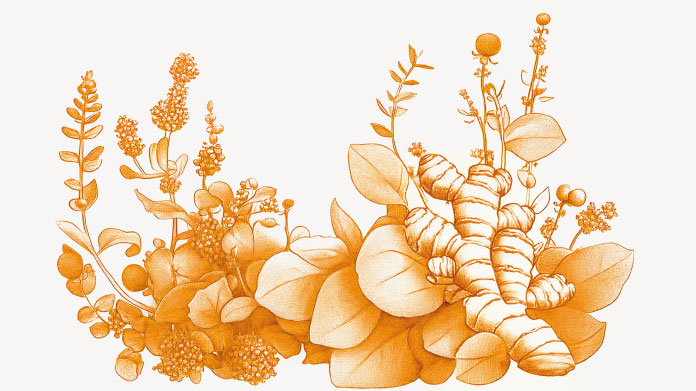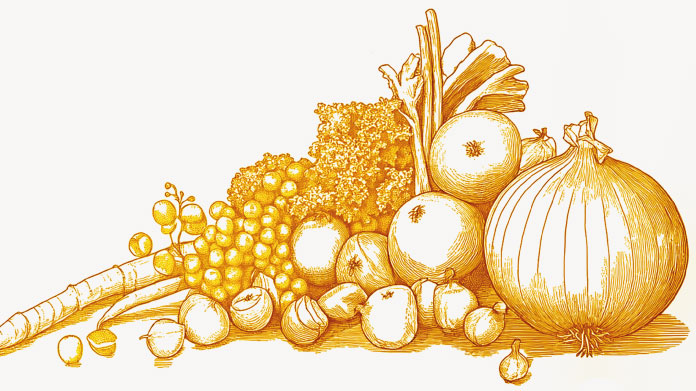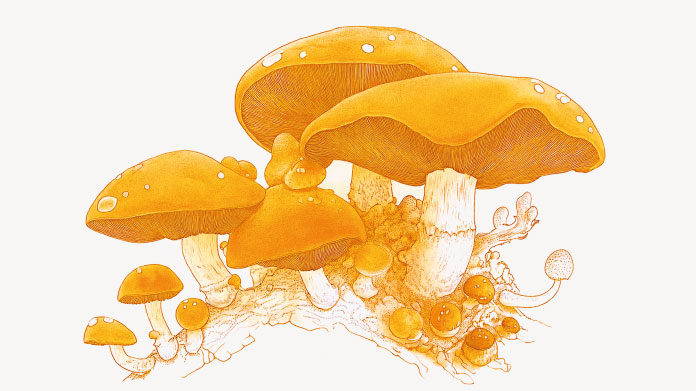Vision, immunity ... which are the best sources of vitamin A?
Vitamin A is key among those vitamins considered essential for health. Here are our recommendations for ensuring an adequate intake.

Quick recap of the vitamin’s benefits
Vitamin A is ubiquitous in human health.
It plays a role in:
- eye health (1) ;
- iron metabolism (2) ;
- skin health (3) ;
- immune system efficacy (4), etc.
It is present in several forms in the body - retinol, retinal, retinoic acid and retinyl phosphate.
Which foods are rich in vitamin A ?
Many animal-source foods
Directly-available vitamin A is actually found in animal-source products (5). These vitamin A-rich foods include:
- meat and offal - poultry, beef, lamb and veal;
- cod liver oil, mackerel, salmon and oily fish in general;
- butter, cheese (such as feta made from sheep’s milk, etc (6).
Vitamin A and plant foods
Plant-source foods primarily contain beta-carotene, a provitamin which the body easily converts into vitamin A.
So if you don’t eat animal products, there is an alternative source of vitamin A. It’s best to choose highly-coloured fruits and vegetable - in fact, beta-carotene is none other than a red-orange pigment (7).
Focus on:
- sweet potatoes, pumpkin, carrots;
- peppers, turnip greens, Swiss chard;
- cabbage, spinach, lettuce;
- mango, melon, papaya;
- grapefruit, nectarines, apricots, etc (8).
Which supplements can you take to prevent vitamin A deficiency?
Microalgae are rich in vitamins
Microalgae are important allies:
- chlorella is a single-celled algae that grows in fresh water. It is rich not only in vitamin A but in iron, proteins and other vitamins too, and so provides a significant boost to the immune system as well as support for the body’s detox mechanisms (Chlorella);
- spirulina is a tiny blue-green algae which is exceptionally rich in proteins, beta-carotene and other carotenoids. A perfect choice if you’re lacking in energy (Spirulina).
Carotenoid complexes
You could also try a carotenoid complex. The formulation Carottol™, for example, combines beta-carotene, lutein, lycopene, astaxanthin and zeaxanthin. All these compounds are particularly helpful in protecting against problems with vision or the immune system.
Don’t forget multivitamins
Last but not least, taking a multivitamin complex (such as Daily 3) is always a good idea. If you need to, be sure to seek advice from a health professional to identify your particular requirements.
The consequences of a lack of vitamin A can be serious. A diet with plenty of brightly-coloured fruit and vegetables, along with some carefully-chosen supplements, will provide you with sufficient vitamin A to ensure you stay in the best of health!
References
- Wu J, Cho E, Willett WC, Sastry SM, Schaumberg DA. Intakes of Lutein, Zeaxanthin, and Other Carotenoids and Age-Related Macular Degeneration During 2 Decades of Prospective Follow-up. JAMA Ophthalmol. 2015 Dec;133(12):1415-24.
- https://efsa.onlinelibrary.wiley.com/doi/abs/10.2903/j.efsa.2009.1221
- https://efsa.onlinelibrary.wiley.com/doi/abs/10.2903/j.efsa.2010.1754
- Sommer A, Katz J, Tarwotjo I. Increased risk of respiratory disease and diarrhea in children with preexisting mild vitamin A deficiency. Am J Clin Nutr. 1984 Nov;40(5):1090-5.
- Clagett-Dame M, Knutson D. Vitamin A in reproduction and development. Nutrients. 2011;3(4):385–428.
- Gilbert C. What is vitamin A and why do we need it?. Community Eye Health. 2013;26(84):65.
- Khoo HE, Prasad KN, Kong KW, Jiang Y, Ismail A. Carotenoids and their isomers: color pigments in fruits and vegetables. Molecules. 2011;16(2):1710-1738. Published 2011 Feb 18. doi:10.3390/molecules16021710
- Gilbert C. What is vitamin A and why do we need it?. Community Eye Health. 2013;26(84):65.
Keywords
5 Days
great products and prices
great products and prices
Marie
11 Days
Easy to navigate site
Easy to navigate site, had what I was searching for, good price. easy order-check out
James Tucker
17 Days
My skin is clearing up nicely!
Pretty good for my skin so far.
Christian
19 Days
The new packaging is excellent
The new packaging is excellent - finally! No more squashed boxes and torn envelopes.
GORAN
20 Days
Great Product
Great Product
Larry Garrett
24 Days
Quick shipping
Quick shipping; good price. No issues!
Mary McCarty
26 Days
Thr product is very good and is helping…
Thr product is very good and is helping me on my health. Then is always on time
LUGO Luz
28 Days
Buying was fine
Buying was fine. I had problems with the website not recognizing my login info, and had to call to get it fixed. Other than that, everything was good.
David S. Clark
28 Days
Your super maca and super ginseng are…phenomenal
Your super maca and super ginseng are phenomenal supplements that compliment each other when taking them together. Fantastic feeling of well-being and lots of mid day energy without the crash.
Keith Mason
31 Days
I have had amazing results with every…
I have had amazing results with every supplement I've purchased. I am extremely satisfied with this company
kirstin Torres
31 Days
Fine products
Fine products . They are on the leading edge of online supplements. The only issue -so far-is they sometime run out of subscription items.
Jason Argos
34 Days
The ordering process is very user…
The ordering process is very user friendly and the products always come in a timely manner.
CARTER Rhonda
35 Days
The price for Dr
The price for Dr. Pero's AC-11 is reasonable and in line with his views. (my former colleague). Keep it pure.
CAMPBELL Clayton
38 Days
Right on every time.
Right on every time.
Arthur Nicholas
41 Days
They are cheaper than everyone else and…
They are cheaper than everyone else and the shipping was fast. Great company.
Patricia Adams




